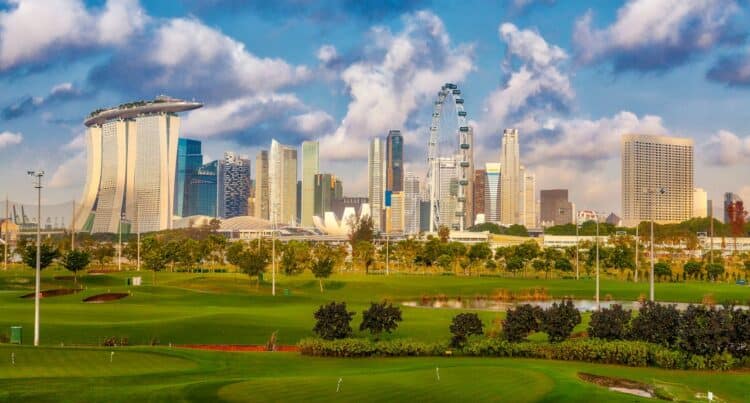A joint study by Schneider Electric and the Singapore Green Building Council (SGBC) indicates that Singapore's green building sector is gaining momentum, driven by increased understanding and the adoption of key technologies such as digital twins and AI .
The study reveals that over a fifth of Singapore businesses have achieved cost savings of 30% to 49% through the implementation of digital twin and AI solutions . Furthermore, business leaders express confidence that these savings will continue to rise, leading to increased adoption of green building practices.
This positive trend aligns with Singapore’s Green Building Masterplan, which aims to classify 80% of the nation's buildings (by gross floor area) as green by 2030. As of July 2024, just under 60% of buildings in Singapore have been greened.
The study highlights that green building technologies are delivering tangible cost savings and emissions reductions. Respondents reported up to 20% energy savings over the past 12 months. Digital twin and AI solutions show particular promise, with approximately a quarter of respondents reporting cost reductions of 30% to 49%.
Consequently, cost is becoming less of a barrier to green building adoption, with only 36% of survey respondents citing it as a top concern, a significant decrease from 61% in 2023.
In addition, around 80% of respondents have achieved emissions reductions exceeding 10% through energy efficiency technologies, renewable energy integration, innovative building materials and design, and the installation of transport infrastructure. As technology advances and implementation levels increase, respondents anticipate even greater savings in the future.
The study also reveals a growing emphasis on holistic approaches, with employee welfare emerging as a significant driver of green building ambitions. Eight percent of business leaders cited employee expectations as a primary motivator, up from 3% in 2023.
The proportion of business leaders citing regulatory expectations as the top driver has also increased, rising to 10% from 2%, potentially influenced by Singapore's Mandatory Energy Improvement (MEI) regime.
The MEI regime, effective from Q3 2025, targets energy-intensive buildings with a gross floor area of 5,000 square metres or more, requiring building owners to conduct energy audits and implement energy efficiency improvement plans. Buildings that do not meet the new energy efficiency standards may face fines up to S$150,000.
Yoon Young Kim, cluster president, Singapore and Brunei, Schneider Electric, emphasised the scalability of digital green building solutions and their positive impact on achieving national net-zero targets.
Singapore Green Building Council president, Allen Ng, underscored the importance of sustained momentum in green building regulation and targeted incentives for retrofitting older buildings to achieve Singapore's 2030 targets.



